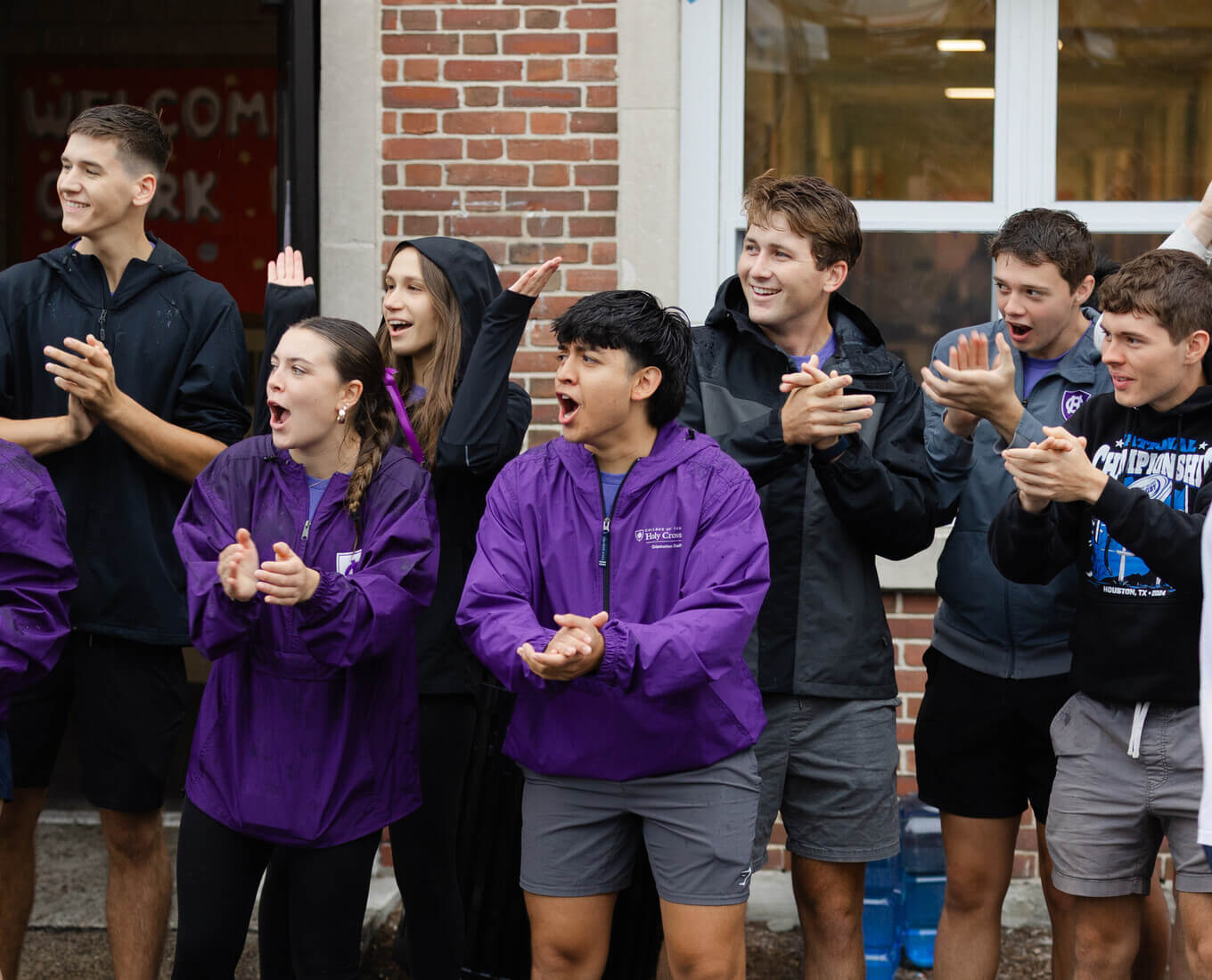 Worcester Public Schools are out for the summer, but 20 city teachers were recently back in the classroom — albeit on the other side of the lab table. As part of a three week-long professional development workshop from June 26 to July 13 at the College of the Holy Cross, they were engaged in intensive scientific inquiry into the brain.
Worcester Public Schools are out for the summer, but 20 city teachers were recently back in the classroom — albeit on the other side of the lab table. As part of a three week-long professional development workshop from June 26 to July 13 at the College of the Holy Cross, they were engaged in intensive scientific inquiry into the brain.
The Biological Basis of Behavior workshop, conducted by John Axelson, professor of psychology at Holy Cross, covered the structure and function of the nervous system: how neurons work; effects of drugs on behavior; stress and health; sleep and circadian rhythms; and hormones and behavior. Examining sheep brains, among other work, allowed them to better understand the material by “doing science.”
“To really learn anatomy you have to work with the parts of the organism you’re studying,” says Axelson. “You can only learn so much with a diagram.”
The three-year $144,000 grant, funded by the Massachusetts Board of Higher Education, seeks to “strengthen teachers’ ability to present contemporary scientific topics using the exciting, discovery-based, content-driven approach pioneered by Holy Cross science faculty.” Last year, Matthew Koss, assistant professor of physics at the College, led a workshop on microgravity theory and experiments.
The “teachers-turned-students,” from elementary through high schools across the city, spend each morning updating their scientific content by listening to lively lectures by Holy Cross professors and in the afternoons, work on curriculum and laboratory protocols to take back to their schools.
The workshops also offer the teachers to meet other experts in the field. Three visitors discussed their areas of expertise at this year’s workshop. Craig Ferris, director of the Comparative Neural Imaging Lab at the University of Massachusetts Medical School, discussed the use of imaging techniques to study brain function. Daniel Bitran, associate professor of psychology at Holy Cross, spoke on the biological basics of drug addiction and drug abuse. Amy Wolfson, professor of psychology at Holy Cross, talked about her sleep research work with adolescents.
The workshops are especially timely and important after the recent economic slump and reduced education reform funding which have led to a reduction in inquiry-based opportunities, increased class size and the loss of experienced science teachers. This is not the first time Holy Cross has played an active role in the Worcester Public Schools, one of the largest school districts in New England with roughly 25,000 students. Since 1988, the College has collaborated with the school system in the sciences and other fields such as library research, educational technology, creative writing, poetry, music, theater, and more. With the help of more than $2 million of external funding raised by Holy Cross since 1988, several categories of science collaboration have taken place, including year-long sabbaticals for science teachers.
The teachers say the workshop stimulated their own brains and will help them pass important information and the thrill of science down to their students.
“One of the things that is important for all of us — when you’re teaching elementary to high school kids — is creating an academic stimulus. We want to help our kids to be lifelong learners,” says Robin Scarrell, who teaches seventh- and eighth-grade science at Forest Grove Middle School.
“It provides me the opportunity to expand my knowledge base,” says Sandra Holmes, who teaches ninth-grade biology at North High School. “We were intellectually stimulated,” says Richard Horuzek, who teaches eighth-grade science at Forest Grove Middle School.
Besides the new knowledge, new experiments, and new pedagogical approaches that they can take to their classrooms, the school teachers have also made a lasting relationship with their teacher. Axelson hopes the teachers will take him up on his offer of inviting him back to some of their schools to serve as a guest speaker.
“They are highly motivated. They want to do the best that they can. I was impressed with them,” he says. “I want them to feel free to contact me and I’d be happy to visit them at their schools to talk about the brain or stress or a related matter. I will look forward to doing that.”
Brainy Summers
State grant supports workshops for Worcester Public School teachers
Read Time
3 Minutes
